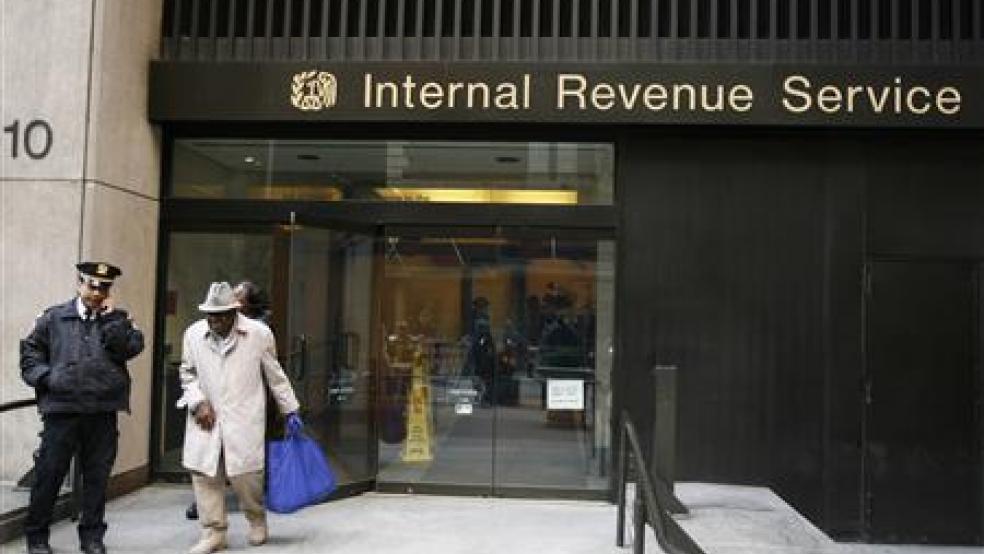The U.S. tax gap – the difference between federal taxes owed by businesses and individuals and those actually paid -- is enormous. According to the most recent analysis by the Internal Revenue Service, covering the years 2008-2010, the tax gap is more than $450 billion a year.
It’s no secret that the IRS tax enforcement operations have been hamstrung for years by sharp cuts in its operating budget by a Republican-controlled Congress seeking to limit if not punish the agency. More recently, Treasury Secretary Steven Mnuchin has stressed the need to beef up the IRS enforcement division to close the gap. Treasury officials estimate that every additional $1 invested in enforcement can generate $6 of additional tax revenue.
Related: IRS Still Lacks Enough Auditors to Close the $458 Billion Tax Gap
A new report by the Treasury Inspector General for Tax Administration released this week highlights the problem and suggests that the IRS may still be doing too little to go after employers suspected of hiding wages and failing to report billions of dollars in federal payroll taxes, including for Social Security and Medicare.
The inspector general analyzed 137,272 cases from tax year 2013 in which there was a glaring discrepancy between employee wage and withholding information reported to both the IRS and the Social Security Administration and found that the IRS declined to investigate most of the possible fraud. According to the inspector general, the IRS intervened in only 23,184 of those cases, or just 17 percent of the total.
The remaining 83 percent of the cases that were never probed had a “potential underreported difference” of more than $7 billion, according to the report. What’s more, the inspector general found that some of the biggest discrepancies in reporting within this group – averaging $128 million in assessment potential – were never checked out.
Although the cases examined in the audit date back several years, the inspector general’s report suggests that lax enforcement is an ongoing problem, prompted by limited resources that prevent investigators from pursuing all of the cases.
Related: The IRS Just Invited More Tax Cheating by the Public
“Management’s continual reduction in resources allocated to working discrepancy cases directly contributes to the IRS’s inability to reduce the billions of dollars it reports each year as being lost as a result of the Tax Gap,” the report states.
President Trump’s first budget blueprint in March called for a $239-million cut to the IRS’s budget for fiscal 2017, despite Mnuchin’s previous requests to hire more IRS staff and modernize its technology. The blueprint would reduce Treasury Department funding by 4.1 percent and shift funding toward combating financial crime, terrorism financing and economic threats.
Congressional Republicans subsequently announced that they would freeze total IRS spending at $11.2 billion, which would hold that agency's funding to below its 2008 level. The Treasury IG estimates that it would take an additional $2.7 million to hire 55 more full time employees to address the problem of underreporting by corporations, businesses and pass-through entities, which employ more than 50 percent of the private sector workforce, according to the Tax Foundation.
The IRS uses a “Combined Annual Wage Reporting Program” that automatically compares the employee wage and withholding information reported to the IRS on employment tax forms to the withholding documents filed with the Social Security Administration.

This automated cross-checking system is designed to ensure that employers are fully disclosing wages paid to their employees and payroll taxes being withheld and presumably paid to the government. This is important not only because it’s against the law for employers to underreport wage and tax information, but because it is essential to employees being properly credited and made eligible for future Social Security benefits.
Related: Is Your Tax Info Safe? Watchdog Says IRS Is Still Vulnerable to Cyber Hackers
The new inspector general’s report indicates that the IRS has routinely passed up opportunities to go after the biggest potential offenders unveiled by the reporting program. “Discrepancy case selection processes do not ensure that priority is given to working discrepancy cases with the highest potential tax assessment,” the report states.





